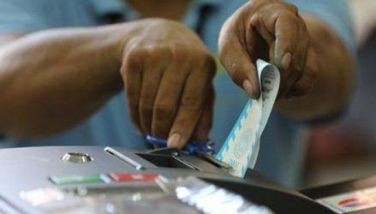Philippines may soon tax Netflix, other digital platforms

MANILA, Philippines — The national government is determining how to tax apps and social media networks, including the popular streaming service Netflix, which have not been on the Bureau of Internal Revenue (BIR)’s list of taxpayers.
Albay Rep. Joey Salceda, who chairs the House of Representatives’ ways and means committee, said his House Bill 6765, the digital economy taxation bill, aims to raise about P29.1 billion in new revenues to help the country cope with the pandemic.
“No new taxes here, we just want them to pay their fair share. Assuming you’re a company that sets up in the Philippines and you do video-streaming or music-streaming services, you will definitely pay taxes, but companies like Netflix and Spotify don’t,” Salceda said yesterday.
The former chief of the National Economic and Development Authority said the measure would “capture the value created by the digital economy better in the country’s tax system, plugging loopholes due to ambiguities in what kind of taxes digital services are liable to.”
HB 6765 is estimated to yield as much as P29.1 billion annually in incremental revenues.
“That’s obviously not fair. When you’re a network in the Philippines, advertising services paid to you will be subject to VAT, but Google and Facebook are not subject to VAT for advertising,” Salceda said, referring to value-added tax.
“They have been raking in millions, if not billions, in behalf of the Filipinos, but not a single cent from the VAT. Zero. Simply put, these are not new taxes. These are tax administration measures that we hope will capture the value more fairly,” he added.
Salceda noted that internet marketplaces, like Lazada and Shopee, are growing very rapidly due to the coronavirus disease 2019 (COVID-19) pandemic, but there may be issues of tax compliance among its partners, too.
“These companies are making a killing because of isolation, but are not paying enough taxes,” he said.
“And we are not able to capture that because our current definitions do not include them as withholding agents even if they have gotten hold of the money,” he added.
More government income
As the Philippines’ shift toward digitalization continues to accelerate due to the imposition of community quarantine measures brought about by COVID-19, Sen. Ramon Revilla Jr. is eyeing the rapid growth of the digital economy as an opportunity for the government to increase its income to be used for providing services for all Filipinos affected by the pandemic.
Revilla filed Resolution 410 urging the Senate’s ways and means committee and the appropriate committees to conduct an inquiry, in aid of legislation, into the possibility of collecting taxes from multinational online streaming services and the digital economy in general.
Some of the most technologically advanced countries, such as Norway, Australia, Japan, France, South Korea, United Kingdom, Singapore and Malaysia, have already adopted and passed their respective versions of digital service tax laws, which enable them to collect taxes from local consumption and use of digital content and services from foreign providers, according to the legislator.
“Many people are watching Netflix and other digital entertainment since the lockdown was imposed by President Duterte in a bid to suppress the COVID-19 contagion. Many groups are using Zoom and other online technology in conducting their seminars and meetings,” he said.
Revilla also pointed out that the establishment of a digital taxation framework is among the strategies recommended by the Inter-Agency Task Force-Technical Working Group for Anticipatory and Forward Planning.
“We need to embrace the digital revolution of our time and to comprehensively review and update our existing tax laws regarding the digital economy,” he said.
Even before the pandemic, the Philippine digital economy was expected to grow by more than 250 percent from $7 billion to $25 billion by 2025, equivalent to 5.3 percent of the country’s gross domestic product, according to Revilla.
The senator said Filipinos are also recognized as voracious online users, typically spending around 10 hours and two minutes on the internet, exceeding the online global average of six hours and 42 minutes daily.
Filipinos, he added, spend around four hours and 12 minutes on various social media platforms every day – nearly double the global daily average of two hours and 16 minutes – and spend at least 3.3 hours daily watching online content on mobile devices.
Revilla suggested that revenues raised from such taxes could be used to finance the national economic recovery plan, especially the rehabilitation of severely affected industries, and the construction of “Schools for the Future,” which are equipped with digital technologies and laboratories.
“While the government is implementing quarantine measures, like social distancing and prohibiting mass gathering, and as we enter the ‘new normal,’ many Filipinos will surely use technology based services, like online streaming and online market,” he said.
The senator also said that while local online businesses have already been covered by the country’s taxation laws, multinational corporations with more sophisticated technological capabilities, less physical presence yet wider reach may have to be properly taxed, given the outdated provisions and leakages in tax measures.
In 2013, the BIR issued Revenue Memorandum Circular No. 55-2013, reminding taxpayers’ obligations in relation to online business transactions, including online shopping or online retailing, online intermediary service, online advertisement/classified ads and online auction.
Revilla further cited multilateral efforts at unifying tax rules regarding digital economy, such as the one led by the Organization for Economic Cooperation and Development, to address overlaps with individual state measures and avoid double taxation, considering the borderless nature of such transactions. – With Cecille Suerte Felipe
- Latest
- Trending




























